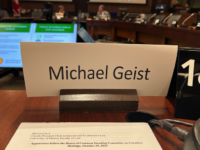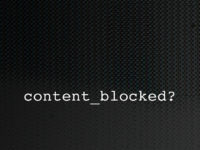Last month, the government seemingly reversed course on its lawful access plans to grant law enforcement powers to demand warrantless access to personal information from any provider of a service in Canada. Buried in Bill C-2, a border measures bill, the lawful access provisions were the most expansive in Canadian history covering everyone from telecom providers to physicians to hotels. The bill sparked widespread opposition amid concerns that it was inconsistent with multiple Supreme Court of Canada decisions and the Charter of Rights and Freedoms. Yet it now appears that the reversal was short lived. Yesterday, Public Safety Minister Gary Anandasangree, Transport Minister Steve McKinnon, Secretary of State for Combatting Crime MP Ruby Sahota and a group of Liberal MPs held a press conference to urge swift passage of lawful access.
Blog
Canadian Government Introduces New Stablecoin Act as Part of Budget Implementation Legislation
The Canadian government yesterday tabled its Budget Implementation Act. Running at over 600 pages, the bill includes several notable provisions related to digital policy including the repeal of the Digital Services Tax, the restoration of a privacy provision in the Broadcasting Act that was mistakenly deleted (yet no one noticed for two years), adding a new data mobility framework to Canada’s privacy laws, and creating a new Stablecoin Act. The Canadian Stablecoin Act is modelled on the U.S. GENUIS Act, though there are some notable differences.
How the Liberal and Conservative Parties Have Quietly Colluded to Undermine the Privacy Rights of Canadians
It hasn’t received much attention, but the government and official opposition – ie. the Liberals and Conservatives – have been quietly working to pass legislation that undermine the privacy rights of Canadians, effectively exempting themselves from the privacy rules imposed on everyone else. As I highlighted in June, Bill C-4 was promoted as “affordability measures” bill but it also includes provisions that exempt political parties from the application of privacy protections. The provisions, which come toward the end of the bill, are deemed to be in force as May 31, 2000, meaning that they retroactively exempt the parties from any privacy violations that may date back decades. The House of Commons Standing Committee on Finance wrapped up its study of the bill last week and incredibly it refused to hear from any witnesses that would speak to the issue. In fact, despite concerns raised in briefs from the Privacy Commissioner of Canada and the Commissioner of Elections, the committee (consisting almost entirely of Liberal and Conservative MPs) limited its discussion of an entire section of the bill to a thirty second description of the provisions from a government official. No witnesses, no debate, no acknowledgement of concerns raised by experts. It was as if the provisions do not exist.
We Need More Canada in the Training Data: My Appearance Before the Standing Committee on Canadian Heritage on AI and the Creative Sector
The government, led by AI Minister Evan Solomon, is currently conducting a short consultation on AI regulation that has attracted criticism for its short time frame. At the same time however, the Standing Committee on Canadian Heritage has been working through a study on AI and the creative sector that may be more limited in scope, but has featured a broader range of perspectives. I had the opportunity to appear before the committee yesterday where I lamented that too often debates on new technology is framed “as a threat, emphasizes cross-industry subsidies, and misses the opportunities new technology presents. We therefore need risk analysis that rejects entrenching the status quo and instead assesses the risks of both the technology and the policy response. I’ll post the full discussion (which ventured into AI transparency, copyright, the news sector, and much more) in a future Law Bytes podcast episode. In the meantime, my opening statement is embedded and posted below.
Senate Bill Would Grant Government Regulatory Power to Mandate Age Verification For Search, Social Media and AI Services Accompanied By Threat of Court Ordered Blocking of Lawful Content
The return of mandated age verification legislation in the Senate – formerly Bill S-210 and now S-209 – has been working its way through a Senate committee with a wide range of witnesses appearing over the past two weeks. I wrote about the new bill in late May, noting that there were some improvements, including an exclusion of sites that “incidentally and not deliberately is used to search for, transmit, download, store or access content that is alleged to constitute pornographic material”. However, I argued that the bill still raised concerns, including the privacy implications of mandated age verification technologies and the establishment of website blocking requirements that would block access to lawful content in Canada. I will be appearing before the committee later this month, but discussion last week at committee merits immediate comment.











